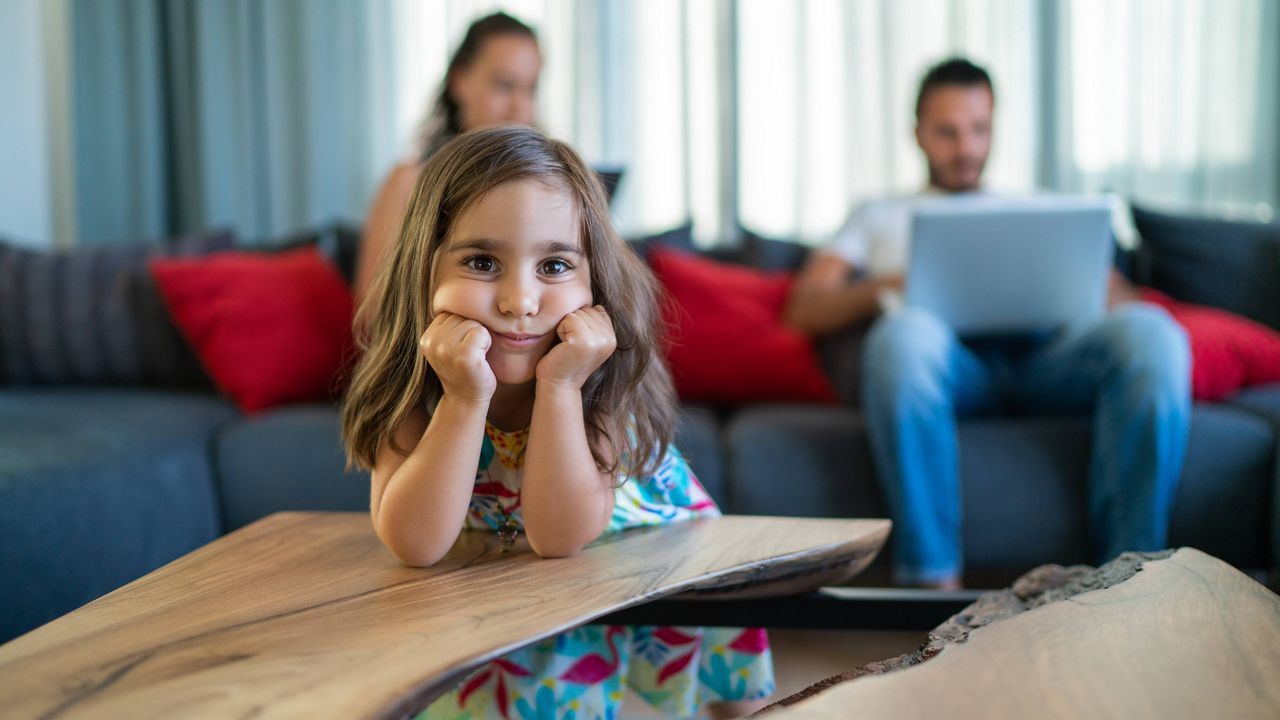LOS ANGELES — Even before Tuesday’s high-stakes election, the lawsuits were already piling up over how to count the results.
Now, instead of being able to put one of the most contentious presidential races to bed, Democratic contender Joe Biden and President Donald Trump are locked in a protractedly fierce battle for the White House, pushing Americans, and their nerves, to the brink.
But families may be feeling the uncertainty more acutely. Juggling uncertainties about the coronavirus and the economy, the election is just the latest stressor for parents who are already struggling to manage their own anxieties about what will happen once the presidential race is settled, whenever that may be.
“Parenting stress is through the roof right now,” said Robin Gurwitch, a psychologist and professor at Duke University Medical Center in Durham, N.C. “Parents have always juggled many different balls, but given what’s happening right now, they’re juggling chainsaws.”
So how should they help their children navigate these escalating uncertainties?
“One of the best predictors of how well children are going to do is how well we do,” said Gurwitch. “It’s not that children can’t see us distressed or stressed or upset because that’s completely disingenuous, but they have to see that we can manage it.”
Parents who are stressed are more irritable, less patient with their children, and less engaged in taking care of themselves, said Gurwitch, who suggests that parents “take a walk, take a shower, pet your animal, do whatever it is you do to calm down and encourage your child to make sure that’s part of their day too.”
That’s especially important for preschool-age children who are most apt to mimic their parents’ behavior.
“If you’re feeling out of control, that’s the behavior they will exhibit,” said Mary Alvord, a practicing psychologist and adjunct associate professor of psychology and behavioral sciences at George Washington University in the nation’s capital. “The littlest ones are picking up on their parents’ stress but not understanding what’s going on.”
Alvord suggests using the uncertainty of the moment “to teach disappointment. We build resilience by dealing with disappointments, but we also really fortify ourselves and our kids by dealing with uncertainty well.”
Uncertainty, and the stress it causes, are a hallmark of anxiety disorders, she said. According to a new stress study the American Psychological Association conducted in October, two-thirds of adults said they’ve experienced increased stress over the course of the pandemic; nearly half said their behavior had been negatively affected, causing them to experience mood swings or yell at a loved one.
And that was before Tuesday’s vote.
“Some of the stress is not just the outcome of the election,” Alvord said. “It’s distress within families. Families are not speaking to each other about politics.”
One of the best ways to manage the anxiety is to take action.
“Instead of saying everything is OK, which you don’t want to do because you don’t know, instead show some calm. Talk about the things that you can do and that you have control over.”
Alvord added, “Action is how we’re empowered. When we’re passive, we’re helpless, and when we’re helpless, we feel more depressed.” Catastrophic thinking, or imagining worst case scenarios, “paralyzes people into thinking they can’t do something, but we all make choices every day.”
Gurwitch, with Duke University, recommends a game called three good things. “At the end of each day, name three things little or big that were good about today. Even if we’re stressed out about this unknown, ongoing election, can you see three good things in your day?”
It could be anything from enjoying dinner to watching a favorite program on TV.
“Sit down with your kiddos and say, ‘There’s been so much talk and coverage about this election, tell me what you know about it,” Gurwitch said. “That’s first, so that you can get a sense of where your children or teens are starting from.”
There may be misinformation that parents may need to correct, Gurwitch added.
Once parents have an understanding of what their kids know, then it’s important to ask them how they feel about it and then to validate those feelings, she said. “Worried, scared, happy, angry, whatever it is, you can’t just say you can’t feel that way because it doesn't work. We have to validate their feelings.”
“If your candidate lost, there's going to be disappointment,” Gurwitch said. “But we can also instill a sense of hopefulness or optimism that our democracy has been around for a couple hundred years, that we’ve had disappointments in the past, and we’ve always figured out a way to move forward.”
Democracy gives people a voice, and sometimes that yields results that inspire uncomfortable emotions.
“The reason our democracy works is because we have parties. Sometimes the parties don't see eye to eye, but they feel the way they do just as strongly as we feel the way we do. And that doesn’t mean there’s something wrong with them. They just see them differently,” Gurwitch said.
Gurwitch encourages parents to be very careful about saying negative things about people supporting the opposing candidate.
“That may translate into children saying negative things or tweeting people who don’t have the same ideas that they do, and that can lead to bullying and conflict among peers,” she said.
As difficult and unsettling and uncertain as this election has been, it’s also an opportunity to teach children how to see and treat others and acknowledge how they would like to be seen and treated.
“This is an opportunity to think about the values we want our children to hold,” Gurwitch said. “One of the things we hope to come out of the election is how we interact with people who have different ideas than we do. It may pay dividends.”



